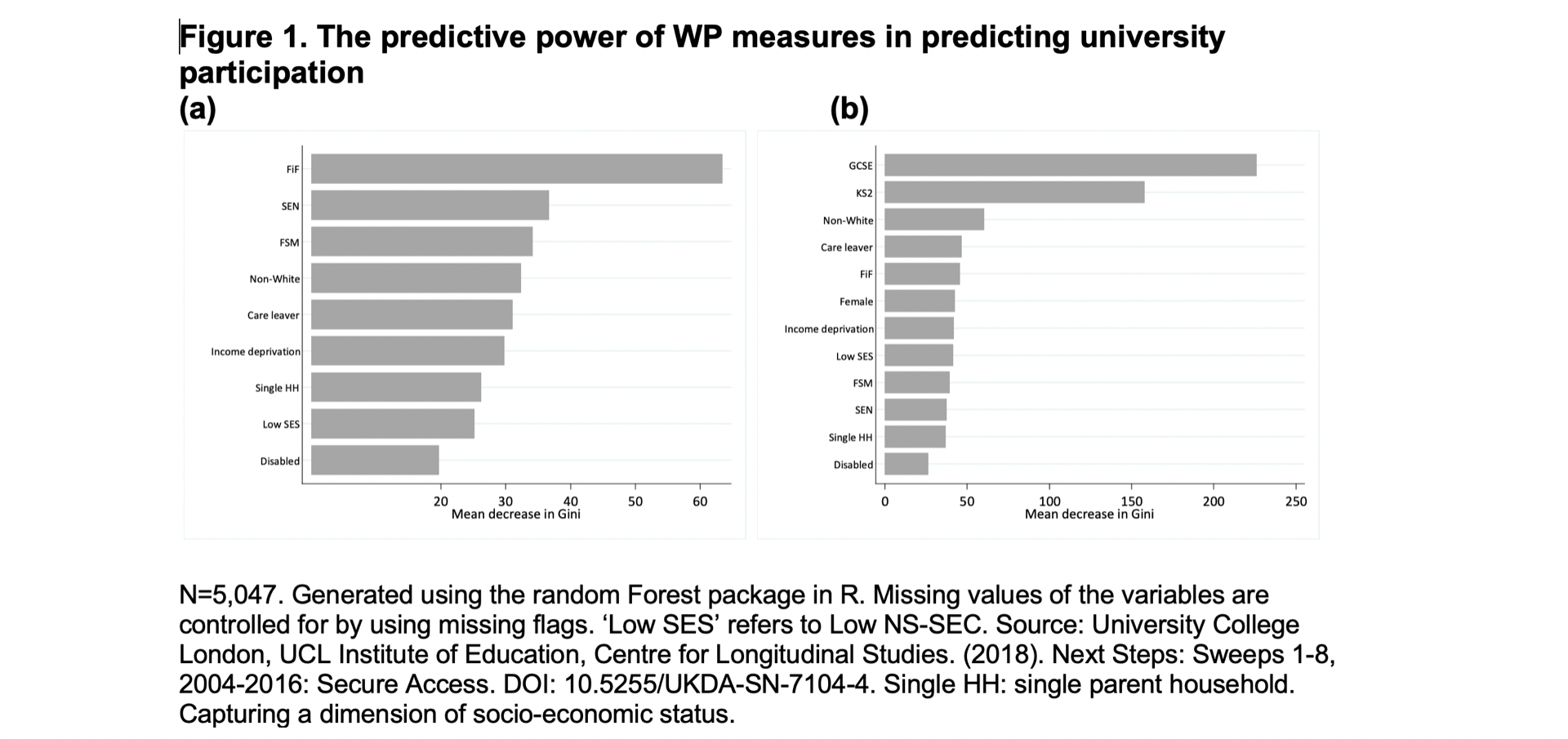Widening participation in HE: why it’s important to focus on ‘first generation’ students
By Blog Editor, IOE Digital, on 4 November 2020
4 November 2020
By Anna Adamecz-Völgyi, Morag Henderson, and Nikki Shure
As this new and unusual academic year starts taking shape, thousands of students are trying to settle into their new lives at university. For some students, going to university will seem like the obvious, normal thing to do. Others, especially those who are the first in their families to attend higher education, may be stepping into less comfortable new world.
A plethora of research shows that young people from disadvantaged backgrounds are less likely to go to university and that if they go, they end up at lower ranked institutions, studying “lower value” courses than their peers from more advantaged backgrounds. At the same time, universities are actively engaging in the “Widening Participation (WP) agenda”, attempting to increase the diversity of their student body. But in order to attract students from disadvantaged backgrounds, universities first need to be able to identify who they are.
Our research will help them pinpoint the right students.
We have found that systemic changes are needed in the way data is collected and used in order to better progress the WP agenda. Currently in England, the target groups include those who:
- come from low-income families,
- are eligible for Free School Meals (FSM),
- come from a low social class background,
- could be ‘first in family’ or ‘first generation’ graduates,
- were young carers or who have been in care,
- have disabilities or special education needs (SEN),
- come from minority ethnic backgrounds.
Our Nuffield Foundation funded project on ‘first in family’ or ‘first generation’ graduates is the first large-scale project to explore the lives and trajectories of these individuals in England. As part of this project, we wanted to know whether ‘first in family’ (FiF) is a good indicator for widening participation programmes. How does it compare to the other indicators? Does it capture more or less advantaged individuals and can it be used accurately and reliably?
The motivation for writing a paper on this topic was to help universities understand the strengths and weaknesses of the indicators they use. We focus on FiF for four main reasons:
- a large proportion of the English population come from families where no parent has a university degree;
- while most other WP measures target the very bottom of the socioeconomic distribution, potential FiF might be able to capture students who are relatively less advantaged;
- a large range of universities and employers currently use it as a measure; and
- it is the only WP measure that directly captures an individual’s parental human capital.
We used data from Next Steps, a nationally representative longitudinal cohort study of young people born in England in 1989-90. This meant we could look beyond the WP policies of any one institution and access what’s happening across the whole system.
Our results show that compared to other widening participation measures, not having graduate parents was very strongly linked to not going to university. Panel (a) of Figure 1 shows how the WP indicators rank in terms of their predictive power using a standard statistical method (Random Forest models). This is a method that allows us to compare and rank how well different indicators predict who would go to university. FiF is clearly the most predictive (note the longest bar) and this pattern holds across all statistical methods used in our research.
What is noteworthy, however, is how things change once we bring in prior attainment. Panel (b) of Figure 1 shows what happens when we include GCSE and Key Stage 2 performance in the model predicting university participation. Now FiF is no more or less predictive than other WP measures (note the size of those bars are relatively similar). The most important predictors of whether or not someone goes to university is their performance on compulsory exams.
This finding made us curious about how the disadvantage captured by the FiF indicator might already affect performance on GCSE exams. We ran the same exercise again, but this time looking at GCSE performance. A similar pattern emerged. FiF was the most significant predictor of GCSE performance until we included Key Stage 2 results in the model. When we looked at Key Stage 2 results as the outcome, FiF was again the most important predictor of all the WP indicators. This tells us is that parental education is a key indicator of disadvantage and that this disadvantage operates through early educational attainment.
Our research points to the need to get serious about contextualised admissions, a type of affirmative action policy where universities offer places to disadvantaged students which take account of their background. The disadvantage that FiF individuals face clearly runs through their schooling career. This WP indicator should be prioritised by universities in the admissions process.
A good indicator of disadvantage should be verifiable, accurate, and reliable. At the moment, WP measures, including parental education, are collected at the point of university application; however, universities follow different policies on when to access and how to use such information.
The UCAS form should be updated so that applicants have to provide the specific level of education of each parent (for instance, via a dropdown menu). Furthermore, the current system allows students to skip giving this information, and thus, for a large share of students, data on parental education are missing. As this measure is key in widening participation, it is crucial that universities identify FiF individuals accurately. The goal is to give every university the same, reliable information at the beginning of the application process. Going forward, this self-reported information could be checked against administrative data making the measure verifiable.
Calls to change the university application system have been especially strong this year. If we are going to make meaningful, systemic changes, let’s not forget about the goal of widening participation.
The research underpinning this blog post has just been published by Economics of Education Review: Adamecz-Völgyi, Anna, Morag Henderson, and Nikki Shure. 2020. “Is ‘First in Family’ a Good Indicator for Widening University Participation?”
One Response to “Widening participation in HE: why it’s important to focus on ‘first generation’ students”
- 1
 Close
Close






[…] Institute of Education has a blog on why including first generation HE students is relevant today. They set out to explore whether […]